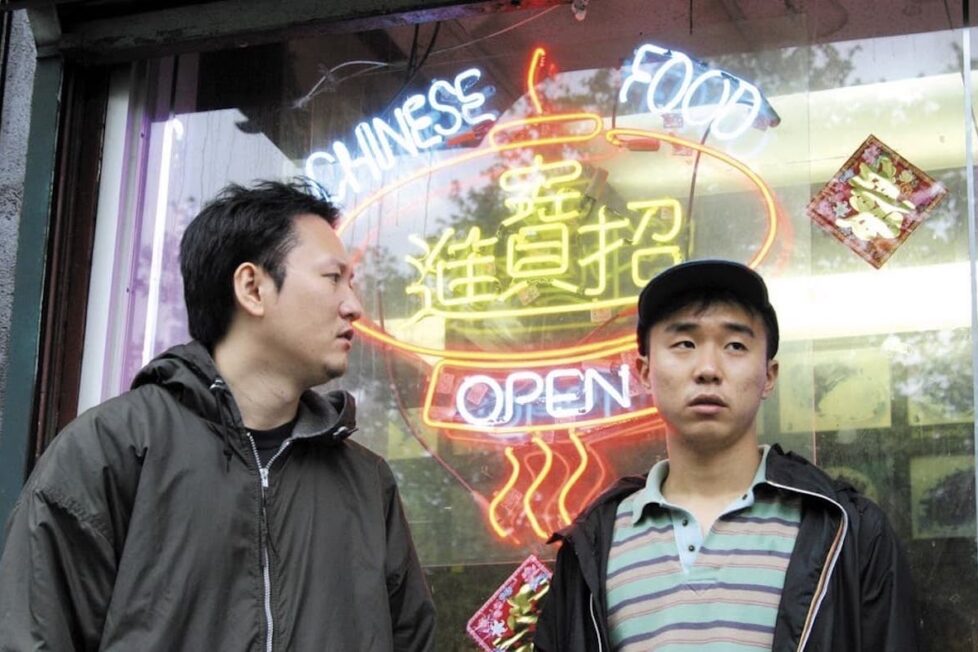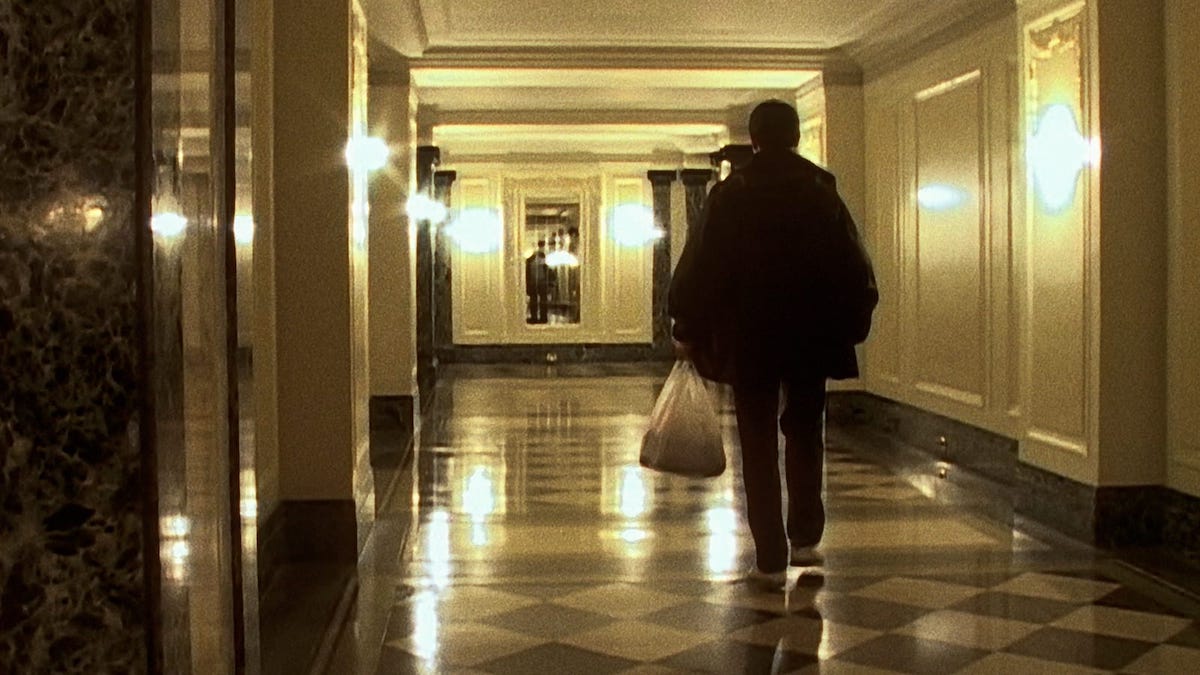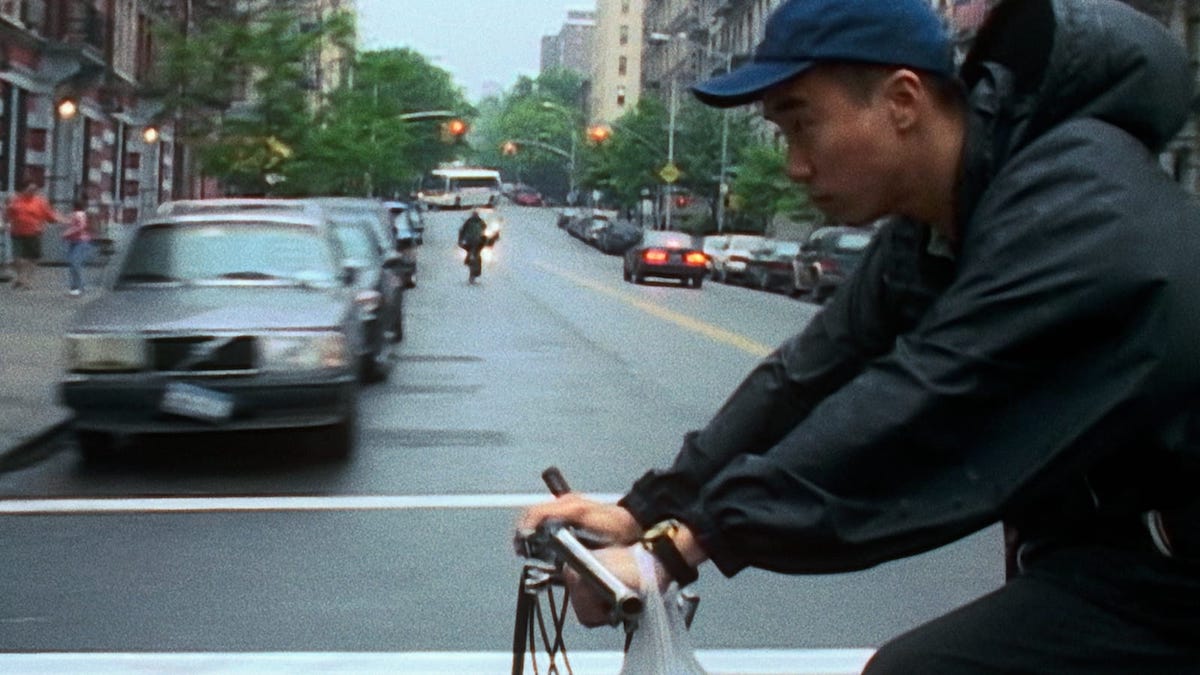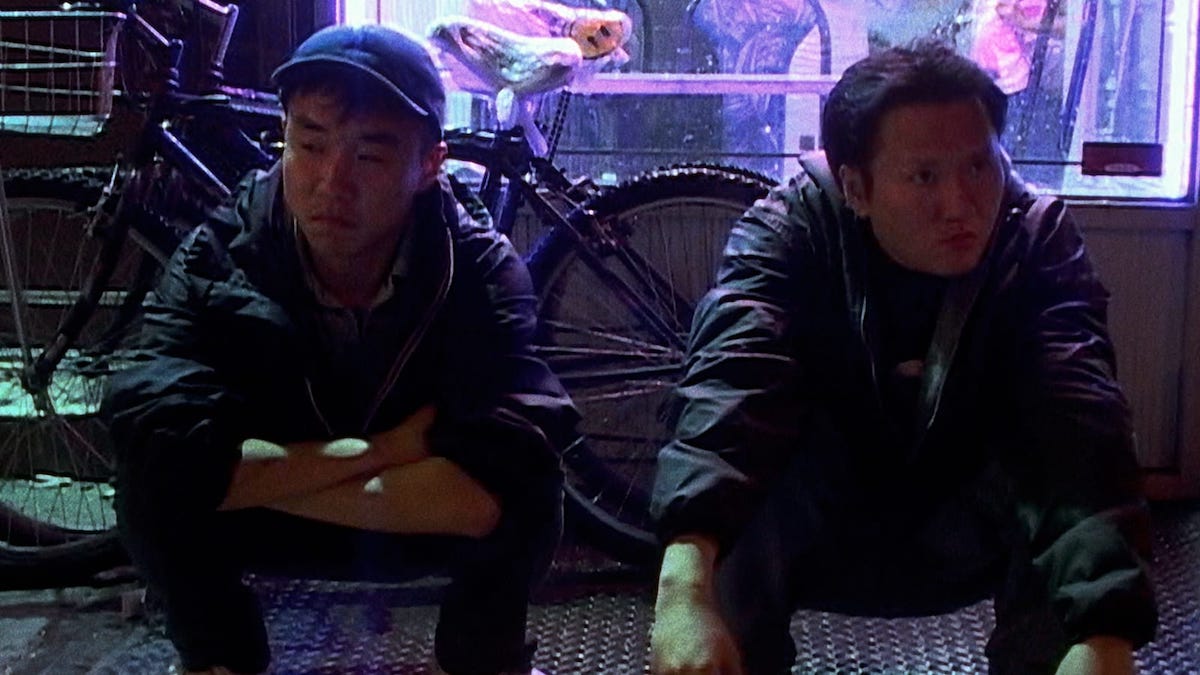TAKE OUT (2004)
An illegal Chinese immigrant falls behind on payments on an enormous smuggling debt, so is given until the end of the day to come up with the money.

An illegal Chinese immigrant falls behind on payments on an enormous smuggling debt, so is given until the end of the day to come up with the money.


Acclaimed independent filmmaker Sean Baker has spent his career chronicling individuals living on the margins of American society. The kind of characters that are rarely given the attention and respect they deserve. He’s made it an objective to empathise with the people who are often dismissed, ignored, and ridiculed. Before breaking into the mainstream with the effervescent The Florida Project (2017), Baker and Shih-Ching Tsou created a compelling portrait of life for undocumented Chinese migrants in the US. Take Out is an honest and unsentimental look at what it means to survive in a new country.
Ming (Charles Jang) works as a deliveryman for a Chinese take-out restaurant in New York City. Having come to the US illegally, he’s hoping to make enough money so his family can follow along. Ming’s struggled for months and now owes a lot of money to the criminals who helped bring him to the country, so a group of thugs storm his apartment and force him to give up his merger savings. Since he’s fallen behind on his payments, the loansharks offer Ming an ultimatum: he must pay them $800 that night to settle up, or else his debt will be doubled. Ming has little choice but to try and raise the demanded sum that same evening, and to achieve this daunting task he asks for help from his only friend, Young (Jens Hua-Yu), who suggests Ming delivers all of the orders from the Chinese restaurant. Ming jumps at the opportunity, peddling his bicycle through wind and rain to earn enough tips to keep the loansharks at bay.

Take Out’s ensemble of amateur actors all deliver performances of such authenticity the film feels like a documentary. The decision to cast actual restaurant employees creates a wonderfully believable community, and allowing them to speak Mandarin creates real chemistry. Charles Jang gives an incredibly empathetic performance as delivery driver Ming, and although his dialogue is sparse, Jang conveys a wealth of emotional information with just facial expressions. His longing gaze shows such hopelessness and despair, while his timid demeanour communicates deep uncertainty over his fate. Ming’s desperation to reunite with his family and Jang embodies every ounce of the character’s nightmarish pain and anguish. Additionally, Jeng-Hua Yu serves as a wonderful comic relief as Ming’s colleague, Young, and naturally exudes confidence and charisma. Young has dreams of owning his own business and remains optimistic that things will ultimately work out for him. Watching the character avoid working at the restaurant while dispensing his wisdom adds welcome levity to Ming’s dire dilemma.
Although Take Out’s premise is remarkably simple, the filmmaker’s persistent pursuit of authenticity and the independent nature of production elevates the material. Co-writers and directors Sean Baker and Shih-Ching Tsou capture the heart of independent filmmaking and create a form of hybrid cinema that treads a delicate line between documentary and narrative storytelling. When asked to elaborate on their approach to filmmaking, Baker responded “our goal was to capture the truth in every aspect of the film from the acting to the look to the sound design. I feel in the end we ‘faked’ reality better than most films that are trying to do so. That may sound cocky but I feel that some of our scenes come as close to a documentary feel that fiction can get.” Inspired by the Danish Dogme 95 movement, Baker and Tsou’s honest portrayal of reality is engrossing. The dialogue is kept to a minimum and the constant noise of the Big Apple provides a strangely beautiful score. The audience merely observes Ming travelling from one apartment to another over the course of an increasingly frenetic day.

Filmed over the course of 30 days on a shoestring budget of $3,000, Take Out’s production was fraught with problems, although Wang-Thye Lee allowed the filmmakers to shoot in her restaurant during business hours. Playing ‘Big Sister’, her buoyant personality and friendly rapport with the customers create a believable sense of a real-life business. Also serving as a production consultant, Lee provided access to the restaurant’s cramped kitchen and real cooks were consulted about the details and complexities of preparing food. The restaurant’s denizens are a combination of actual customers and amateur actors too. Although Baker admitted to staging several sequences with creative editing techniques, Take Out maintains a distinct improvisational style that creates an enthralling unpredictability and documentary verisimilitude
Admirably, Baker and Tsou refrain from using traditional cinematic conventions to maintain suspense. They simplify the situation and establish real-time pacing to create a subconscious tension that becomes more dramatic as the story progresses. The customers at the restaurant are difficult but those at home can be equally challenging for Ming. Their treatment ranges from rude to abusive, even after Young advises him to smile and say “thank you very much” to maximise his tips. During one particular scene, a customer mocks and curses Ming after receiving the wrong food and orders him to return it. Upset at losing valuable time, Ming starts an altercation with his colleague for the mistake. While these sequences certainly depict the struggles illegal immigrants encounter every day, they’re also carefully constructed reminders of just how impossible Ming’s task is. Every monetary interaction and every sequence of Ming travelling through the torrential downpour is a struggle that matters. The effect makes all of Ming’s travails that much more suspenseful and oftentimes heartbreaking.

What’s astonishing about Take Out is how much emotion and compassion are evoked with such sparse dialogue. Baker and Tsou have since made a career from celebrating the misunderstood characters and communities that exist within the cracks of America’s landscape. Starlet (2012) deftly understood the unglamorous world of pornography in the San Fernando Valley, while The Florida Project explored the entanglement of drug addiction and sex work through an adolescent gaze. Take Out poignantly examines the universally complex issue of illegal immigration while shining a humanistic light on the Chinese diaspora. There are brief moments when the screenplay provides information about the social issues at heart. During a particular sequence when all the employees are eating together, they exchange accounts of the various obstacles they’ve encountered while migrating to America. However, Ming remains wordless and emotionally detached from his surroundings. In one telling moment, he unfolds a photograph of his family and studies it with palpable sadness and longing. With exceptional skill, Baker and Tsou transform their story into a deeper metaphor for illegal immigrants of every nationality. The subculture that risks their lives to provide for their loved ones despite feeling lost and scared. Having the audience experience the harsh fate of many undocumented Chinese immigrants through the eyes of Ming becomes more potent and impactful.
With its harmonious blend of documentary and fictional storytelling and its emphasis on spontaneity and improvisation, Take Out was a critical success following its release. While also serving as a poignant commentary on life as an immigrant, it’s also perhaps the most honest depiction of 21st-century NYC. Sean Baker and Shih-Chin Tsou authentically capture the difficulties and dangers of trying to obtain “The American Dream”. The realistic aesthetic works perfectly for the subject matter and it’s almost impossible not to become fully immersed in Ming’s plight. It’s an affirmation of independent filmmaking and definitive proof that one doesn’t need a complicated narrative to keep audiences enthralled.
USA | 2004 | 97 MINUTES | 1:85:1 | COLOUR | MANDARIN • ENGLISH • SPANISH

Sourced from a brand new 4K restoration, Take Out arrives on Blu-ray from Criterion. Supervised by co-directors Sean Baker and Shih-ching Tsou, the image is presented in the original aspect ratio of 1:85:1. During an interview Baker explains it was a complicated and expensive process to realise this 4K restoration. He explains how he intended to create a synthetic celluloid aesthetic for the final transfer, but due to budgetary constraints the finished edit had always been screened digitally theatrically.
For Criterion’s new restoration, Baker had the opportunity to release what he originally intended. The image has been upscaled from the original MiniDV footage to 2K, so many digital anomalies have been removed during the process. Then the footage was printed out on 35mm celluloid and scanned in 4K. Although the resulting HD image clearly respects the filmmaker’s intent, depth and clarity fluctuate rather dramatically. Captured primarily on Sony DSR cameras, the digital photography manages to capture some minor details such as skin textures. However, the lower resolution and healthy film grain prevent finer details from appearing during darker sequences. Primaries have received a massive renovation and the improvement in vitality is noticeable. Contrast levels remain consistent although there’s a noticeable fluctuation during several interior sequences. Despite the limitations of video technology, Criterion’s 1080p presentation provides a satisfactory image overall.
Take Out rings with a newly restored PCM 2.0 uncompressed soundtrack with optional subtitles. The dialogue has been reproduced with strong fidelity, remaining primarily at the front. It remains sharp and clear throughout. Atmospherics establish a constant presence and utilise the rear channels to full effect. The energetic sounds of New York City are aggressively clear and the traffic noises are mixed effectively. Overall, the brand-new stereo soundtrack is surprisingly immersive considering it was recorded with the camera’s equipment.

writers & directors: Sean Baker & Shih-Ching Tsou.
starring: Charles Jang, Jeng-Hua Yu, Wang-Thye Lee & Justin Wan.
